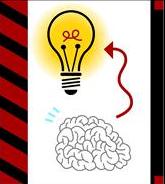Hypnosis reduces hot flashes and improves sleep
Women who underwent hypnosis reported 75 percent fewer hot flashes and 80 percent lower hot flash scores than women who underwent a comparison therapy called “structured attention.”
scores than women who underwent a comparison therapy called “structured attention.”
The study was conducted by researchers at the Mind-Body Medicine Research Laboratory at Baylor University in Waco, Tx, in collaboration with researchers at the school of Nursing at Indiana University and the College of Education at the University of Texas, Austin. The research led by Dr. Gary Elkins, Professor of Psychology and Neuroscience at Baylor University was published in the October 2012 journal Menopause
The study involved 187 postmenopausal women who reported a minimum of seven hot flashes per day or 50 hot flashes per week at the start of the study in Dec. 2008. Participants were randomly assigned to receive either five weekly sessions of hypnotherapy, or structured-attention control.
 The hypnosis involved receiving suggestions for mental images of coolness, a safe place, or relaxation, whichever the individual woman preferred. They also got an audio recording of hypnotic induction and were asked to practice it daily. The structured-attention group underwent five sessions in which clinicians provided discussion of their symptoms, attentive listening, interpersonal exchange, monitoring and avoidance of negative suggestions. They also received a recording that they were asked to listen to daily that provided information about hot flashes.
The hypnosis involved receiving suggestions for mental images of coolness, a safe place, or relaxation, whichever the individual woman preferred. They also got an audio recording of hypnotic induction and were asked to practice it daily. The structured-attention group underwent five sessions in which clinicians provided discussion of their symptoms, attentive listening, interpersonal exchange, monitoring and avoidance of negative suggestions. They also received a recording that they were asked to listen to daily that provided information about hot flashes.
All of the women tracked their hot flashes in a diary, with standardized notation of severity. A skin conductance monitor objectively measured hot flash frequency by recording electrical changes in the skin associated with hot flashes.
After 12 weeks, in addition to the 75 percent lower rate of hot flashes as recorded in their diaries, the hypnosis group also showed a 57 percent reduction in hot flashes as measured by skin conductance. That compared to a 10 percent reduction in hot flashes among the structured attention group. The hypnosis group experienced an average of 55.8 fewer hot flashes per week, compared to 12.9 fewer hot flashes per week in the structured attention group.
In addition to the reduction in menopausal symptoms, the hypnosis group reported sleeping better and experiencing significantly less interference in their lives from hot flashes.
The researchers noted that they don’t know how hypnosis affects hot flashes, but they suggested that it might be because hypnosis may improve the parasympathetic nervous system. This is roughly speaking the opposite of the body’s “fight or flight” mechanism, and is sometimes referred to as the “rest and digest” system. The researchers think hypnosis may counter the “fight or flight” mechanism that revs up during hot flashes, causing sweating and racing heart.